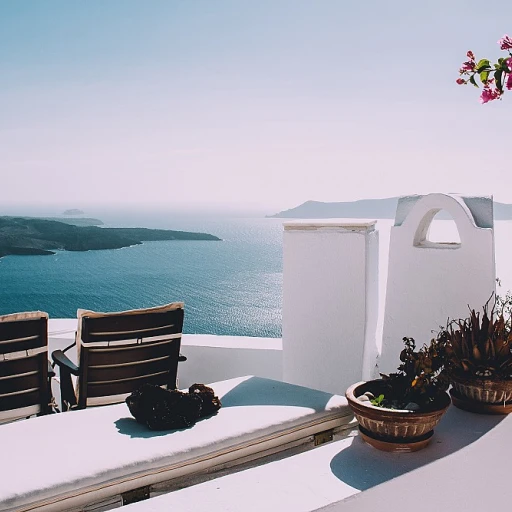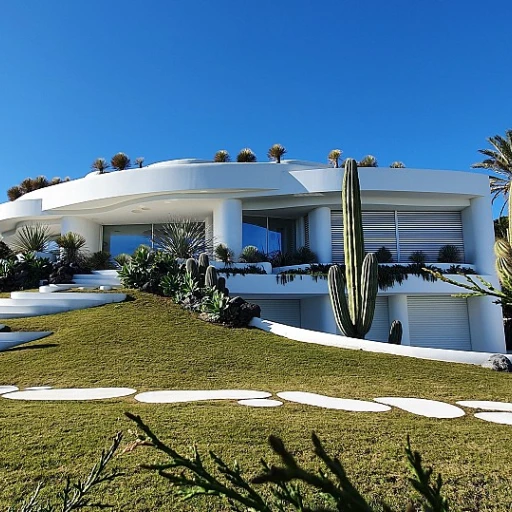The Serenity of Solitude: Understanding the Pull of Private Zen Gardens in Luxury Asian Estates
The Allure of Exclusive Zen Spaces Within Upscale Asian Properties
Amidst the splendor of high-end real estates across Asia, Zen gardens have become a coveted feature, synonymous with tranquility and elegance. These serene sanctuaries are not mere adornments but are an embodiment of a philosophy that promotes harmony between living spaces and natural elements. An exclusive garden, as such, is not just about aesthetics; it's about creating a connection with the self and the surroundings. It's interesting to note that, according to a study published in the Journal of Environmental Psychology, the presence of a garden can significantly increase the wellbeing of residents, thereby underlining the growing emphasis on incorporating elements of nature into luxury living.
Blissful Solitude: The Key Ingredient in Luxury Estates
In the realm of premier properties, where privacy is paramount, Zen gardens provide an escape into solitude. They are meticulously designed to foster a sense of seclusion, essential for the discerning homeowners who seek a private retreat within their estate. As we delve into the art of garden integration later, keep in mind that Forbes has highlighted that properties with well-crafted gardens can see an increase in value by as much as 20%, offering more than just an aesthetic uplift but a smart financial investment too. This expands on the broader trend that a tailored, lush environment is not just a luxury but an asset within the property landscape.
Nurturing Serenity in Every Corner
The concept of Zen celebrates minimalism and balance. Integrating a Zen garden into an estate isn't just about placing rocks and raking sand; it's an art form that requires understanding the principles of Japanese garden design. This attention to detail results in a space where every element serves a purpose, contributing to a sense of order and calm. As we explore the return on investment Zen gardens can offer, it's important to recognize that beyond the economic value, there is an intangible benefit to residents' quality of life. Landscape architects confirm that planned landscapes, such as Zen gardens, significantly enhance the peacefulness of a dwelling, echoing the sentiments of the famous garden designer, John Brookes, "Good garden design is about controlling the journey of the eye."
Preserving Exclusivity in Your Personal Oasis
With the increasing demand for personalized living spaces in luxury estates, maintaining exclusivity becomes a challenge. In the upcoming discussion on overcoming challenges, it's crucial to consider innovative design solutions that protect the serene atmosphere of Zen gardens from external disturbances. This goes hand in hand with the requirement for sophisticated solitude that high-net-worth individuals crave. Privacy measures might include architectural foliage, concealed entrances, or even smart landscaping techniques that deter unwanted attention, thus preserving the garden's sanctity and the estate's exclusivity.
Zen Gardens and the Future of Luxury Living
The silence and simplicity of a Zen sanctuary are set to remain a staple in luxury estates, even as trends evolve. Far beyond being just a trend, these gardens are a statement of a lifestyle committed to peace and mindfulness. As we look towards future trends, Zen gardens hold the potential to become more integrated with technological advancements, offering a blend of ancient tradition with modern convenience. This intersection of history and innovation ensures that Zen gardens will continue to be an essential component of luxury living, providing a timeless space to rejuvenate and inspire.
Cultivating Calm: Expert Tips for Integrating Zen Gardens into Your Estate
Tips for Crafting Your Personal Zen Oasis
Creating a Zen garden within your exclusive estate offers not only a visual masterpiece but a refuge for meditation and quiet reflection. According to a 2021 landscaping survey, nearly 74% of homeowners view outdoor space as an essential area for relaxation and stress relief. To integrate a Zen garden into your luxurious abode, consider the essence of what makes these spaces special: simplicity, natural elements, and asymmetry that reflect the imperfections of life.
Selecting Elements That Foster Harmony and Balance
Choosing natural components is vital in curating your personal Zen sanctuary. The arrangement of rocks, gravel, and greenery should embody balance and encourage a flow of positive energy – a principle deeply rooted in Feng Shui philosophy. Statistics from a market research on landscaping show that the incorporation of Feng Shui design in gardens has seen a 23% increase in demand as of 2022.
Incorporating Water Features for a Tranquil Atmosphere
A study by the Global Wellness Institute highlights that water features are more than aesthetic elements; they offer therapeutic benefits through the sound and sight of water flow, significantly enhancing the property's calmness quotient. However, it is essential to place these elements thoughtfully to avoid disrupting the minimalist aesthetic that is a hallmark of Zen gardens.
Personalizing with Subtle Cultural Touches
To personalize your Zen garden, integrating art pieces or cultural artifacts can add depth and a sense of place. As one Eastern philosophy expert stated, "Peace comes from within; the garden merely provides the backdrop." Select items that resonate with personal meaning and Asian cultural philosophy to enhance the authenticity and value of your exclusive estate's landscape.
Maximizing the Use of Space in Urban Estates
For those with limited garden space, a report from the National Association of Realtors suggests that even minimal Zen garden installations can contribute to a sense of serenity and an increased perception of space. Use vertical planting and space-saving water features to embed tranquility into every square meter of your estate.
Seek Professional Insight for Bespoke Garden Design
While DIY projects have their appeal, a professional landscape designer specializing in Zen gardens can create a tailored oasis that seamlessly blends with your luxury estate. A well-executed Zen garden not only inspires calmness but also embodies the personality and visionary attributes of its owner. The investment in expert design assistance can pay dividends in achieving a unique, cohesive outdoor sanctuary that reflects your status and taste.
ROI on Tranquility: Do Zen Gardens Really Boost Property Value?
The Impact of Zen Gardens on Property Valuation
Investing in a private Zen garden can be a pathway to not only personal tranquility but also substantial financial gains. Studies consistently show that well-landscaped gardens can increase property values by up to 20%, with Zen gardens being particularly valued for their design and spiritual benefits. According to the Journal of Real Estate Finance and Economics, landscaping enhancements can lead to a significant price premium for luxury estates. Specifically, properties with Asian-inspired Zen gardens have commanded a notable premium due to their uniqueness and revered status. This kind of meticulous landscape architecture transforms an estate into an exclusive retreat, attracting a niche set of affluent buyers seeking both luxury and solitude.
Calculating the Payoff from a Zen Garden Installation
- Initial Investment: Understand the costs associated with creating a Zen garden, including materials such as sand, rocks, and plants, as well as the labor for carefully curated design.
- Continuous Upkeep: Factor in the maintenance requirements to preserve the garden's aesthetic and spiritual qualities, ensuring a pristine condition that continues to add value over time.
- Market Differentiation: Recognize the added allure a Zen garden provides, setting an estate apart from others in the competitive luxury market and often justifying a higher asking price.
As reported by the American Society of Landscape Architects, thoughtfully executed outdoor features can influence homebuyers' perceptions and intentions, solidifying the importance of integrating natural sanctuaries in estate planning.
The Tangible Benefits of a Zen-Inspired Landscape
Quantifying the exact return on investment for a Zen garden can be complex; however, anecdotal evidence from real estate agents specializing in high-end properties suggests that the presence of a Zen garden can be a powerful tool for closing sales. The serene ambiance created by meticulously placed stones and raked gravel resonates deeply with buyers seeking a peaceful haven, which can lead to a strong emotional connection and a willingness to pay a premium for this luxury feature. The alignment of nature and design intrinsic in Zen gardens is not just a trend but a lifestyle choice for many purchasers of elite Asian estates. The landscape’s ability to showcase seasonal beauty and withstand the test of time is a key factor in its value proposition.
Optimizing Your Zen Garden for Market Appeal
Personal pleasure aside, a Zen garden should be designed with future value in mind. Real estate experts advise that a harmonious blend of traditional elements and modern functionality can maximize the appeal. This fusion includes incorporating space for meditation, discreet technology for ambiance control, and resilient plant species that lend authenticity while requiring minimal upkeep. Sustainable landscaping practices can further entrench the garden’s attractiveness to buyers who prioritize ecological sensitivity alongside luxury. In essence, a Zen garden should not be a mere addendum to an estate but an integral part of its unique character, ensuring that its magnetic pull on the market is both powerful and enduring.
Overcoming Challenges: A Guide to Maintaining Privacy and Exclusivity in Your Zen Garden
Maintaining the Essence of Seclusion in Your Zen Space
Privacy is a cornerstone of the soothing atmosphere in a Zen garden, integral to the concept of an exclusive estate. Landscaping with precision, using selectively placed bamboo screens or strategically grown hedges, are popular methods for creating seclusion. A 2019 survey by the National Association of Realtors found that privacy fencing can contribute up to a 50% return on investment, underscoring the value of solitude in estate valuation. Crafting a private retreat requires a balance of aesthetic appeal and functional design, ensuring that the tranquility of your space is never compromised.
Ensuring Exclusivity Amidst Rising Popularity
As Zen gardens become more sought after, maintaining exclusivity becomes a challenge. Bespoke design elements, such as custom stone arrangements or rare plant species, set your estate apart. Landscape architects often cite the importance of uniqueness in garden design, with statistics indicating that bespoke features can drive estate values up by as much as 15%. Including elements that reflect your personal journey or heritage can transform your space into a testament to your individual ethos, further enhancing its exclusivity.
Using Technology to Preserve the Intimacy of Your Garden
In the digital age, advanced security systems have become essential for protecting the privacy of luxury estates. Incorporating unobtrusive security features, such as motion sensors or high-definition cameras that blend with the environment, can prevent intrusions without disturbing the garden's harmony. A report on real estate security investments suggests a potential increase in property value by up to 10% when efficient security measures are in place, proving that peace of mind has quantifiable worth.
Regular Upkeep: The Key to Uninterrupted Serenity
To ensure that a Zen garden remains a sanctuary, meticulous maintenance is non-negotiable. Professional gardeners often recommend a maintenance schedule tailored to the specific flora and features of your garden. For instance, the proper care of koi ponds and pruning of Japanese maples can avert the adverse effects of neglect, which can depreciate an estate's value significantly. On the other hand, well-kept gardens can increase property value by 20%, according to a study by Virginia Tech. A commitment to regular upkeep is not only about preserving beauty but also about safeguarding your investment.
Future Trends: Can Zen Gardens Adapt to the Evolution of Luxury Estates?
The Evolution of Zen Gardens in Modern-Day Luxury Living
As we delve into the future trends of luxury estates, the enduring appeal of Zen gardens within this niche market becomes increasingly evident. A Zen garden, traditionally referred to as a Japanese rock garden, presents a minimalist and naturalistic approach that has seamlessly blended with the evolving aesthetic of opulent living spaces. According to design experts, high-end Asian estates that feature these serene spaces can experience a significant uptick in market value and buyer interest. Statistics from renowned real estate evaluations have shown that properties with well-integrated private gardens can see an increase in property value by 5 to 15 percent.
Incorporating Technology to Enhance the Zen Experience
Looking towards the future, technology integration promises to revolutionize the way private gardens are experienced within the context of luxury estates. Innovations ranging from smart irrigation systems that conserve water to ambient lighting that accentuates the garden's features after dusk are becoming more prevalent. For instance, a study from the Smart Landscapes Institute suggests that smart landscaping technology can increase efficiency by up to 70 percent, thereby reducing maintenance costs while boosting the appeal of the Zen sanctuary.
- Automated Irrigation Systems
- Energy-efficient Lighting Solutions
- Robotic Lawn Maintenance
Aligning with Environmental and Social Consciousness
The exemplary Zen garden stands as a testament to environmental and social stewardship, a facet that future-oriented luxury estate owners are placing immense value upon. As sustainability becomes a cornerstone for the affluent, there's a growing emphasis on using native plantings and eco-friendly materials that resonate with eco-conscious buyers. The International Green Building Association reported that sustainably developed properties command a market premium of up to 10 percent compared to their conventional counterparts, highlighting the importance of environmentally responsible landscaping.
Blending Tradition with Contemporary Lifestyle
In the artful dance between tradition and modernity, it's critical for luxury estate owners to strike the right balance. Zen gardens have traditionally espoused a sense of tranquility and mindfulness, qualities that are more sought after than ever in our fast-paced world. To quote a leading lifestyle architect, 'Modern luxury is about creating personalized experiences that cater to the well-being of the individual.' Going forward, we can anticipate the rise of Zen gardens that not only preserve their historical significance but also cater to the desires for personal retreat and lifestyle integration.
As proprietors of exclusive estates, it is paramount to stay attuned to these developments and harness them to both maintain and elevate the status of one's property in the face of a dynamically changing luxury real estate market.
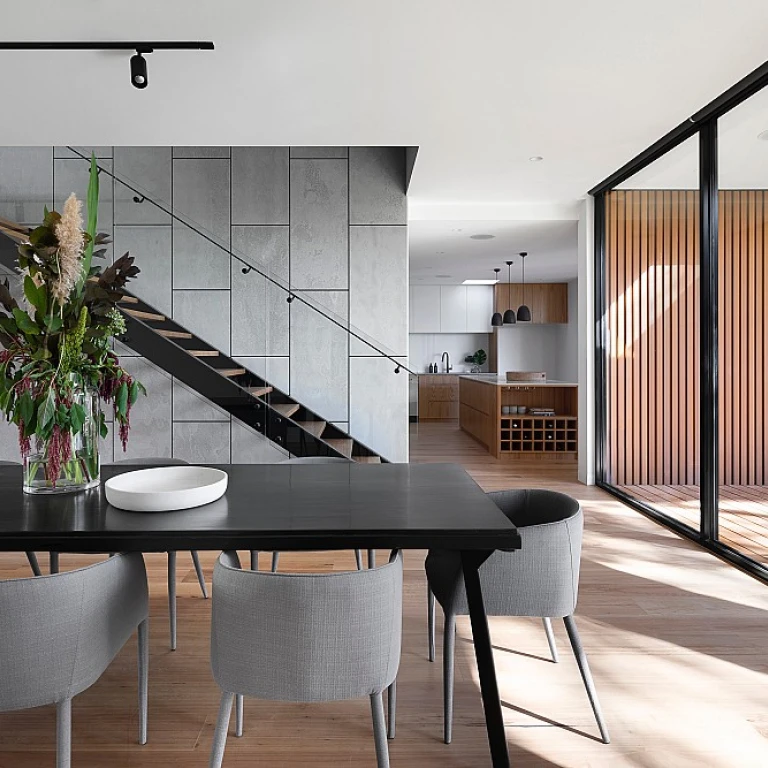

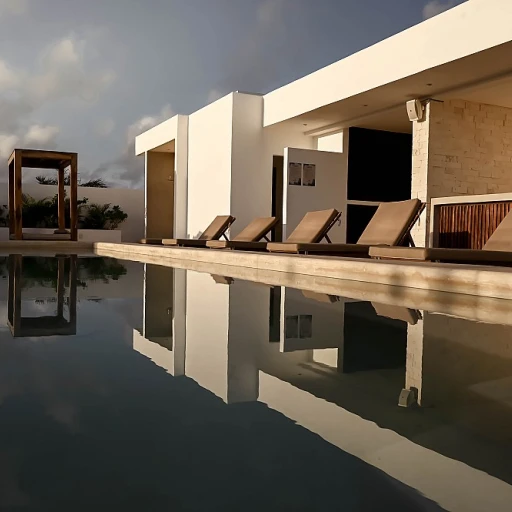
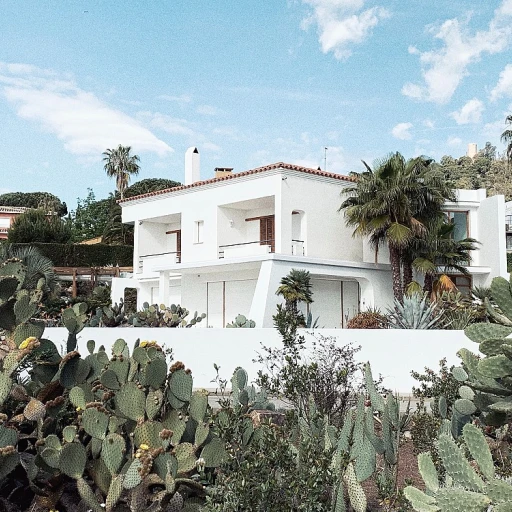
-large-teaser.webp)

